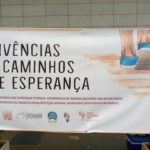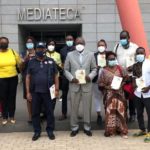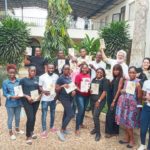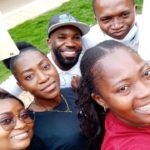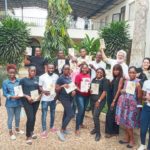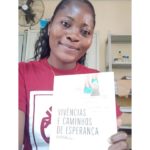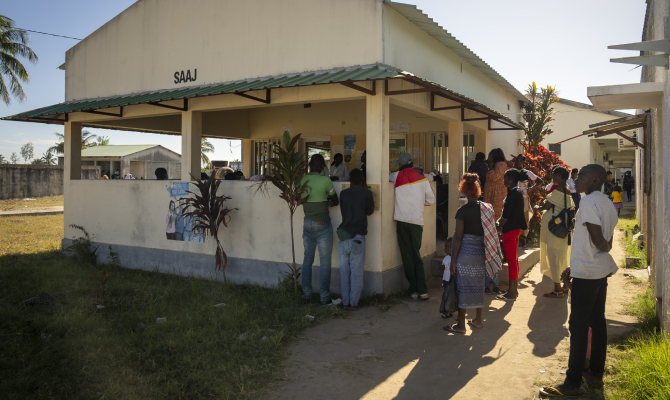“It was a Friday of last year, and like every Friday, the staff met to discuss and evaluate the data collected during the week: HIV tests carried out, number of people who tested positive, the number of patients undergoing treatment, and the dropout rate. A moment for sharing the story of the home visits carried out,” says Luciano Nigro, Cuamm infectiologist.
We are in Angola, in Luanda, within the framework of PIPSA project (Integral protection of HIV-positive people), focused on HIV prevention and on providing continuous and integrated assistance to people living with HIV infection. “When community activists share the stories of the people they meet during the home visits, it often emerges the great loneliness, discrimination and marginalization that people living with HIV have to face”, continues Luciano.
The lack of information and awareness regarding HIV and AIDS, and especially the stigma attached to the infection, are still very widespread and often they are cause of exclusion from the community. “We started to ask ourselves how it was possible to make these people feel less alone in their condition – adds Luciano-. So we thought, ‘What if the stories we hear every day became a book of multiple voices, each one telling their own story?’ It could be a way to make people understand how HIV-positive patients feel, what their daily difficulties are and how together we can face stigma and marginalization in a different way”.
This is how “Experiences and ways to hope” was born, a book which tells how a HIV-positive woman feels and faces the disease, with two children to raise and without the support of a husband, or how a girl lives the stigma within her own family and how it is possible to overcome it through raising awareness within the entire family, or the discouragement and desolation that can be felt at the time of diagnosis, but also the hope for a better and normal life if the treatment is properly followed. And again, the story highlights the essential role of community activists.
“I don’t think we can truly know what the other person is feeling or experiencing, each of us has its own way, but I am convinced that really listening carefully to the stories of others helps us to imagine what they are experiencing and this is the first step in trying to understand each other and be more supportive”, emphasizes Giulia Natali, general coordinator of the PIPSA project.
The projects that Cuamm carries out in 8 countries in Sub-Saharan Africa are made up of data, but above all of the life stories of the people we meet everyday. A collection of voices can be a very powerful tool, creating deep connections, and bringing together those whom we may think are distant.


